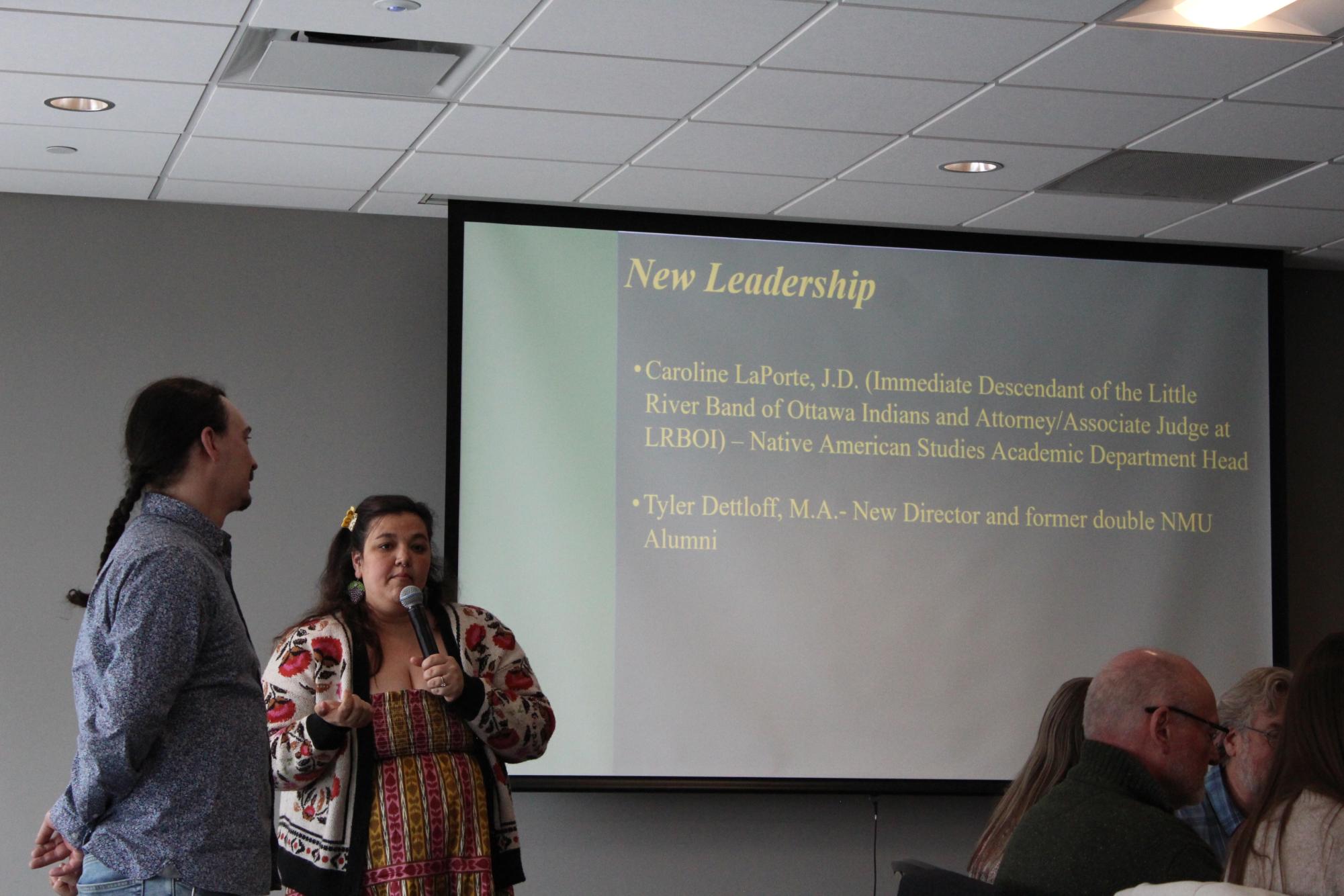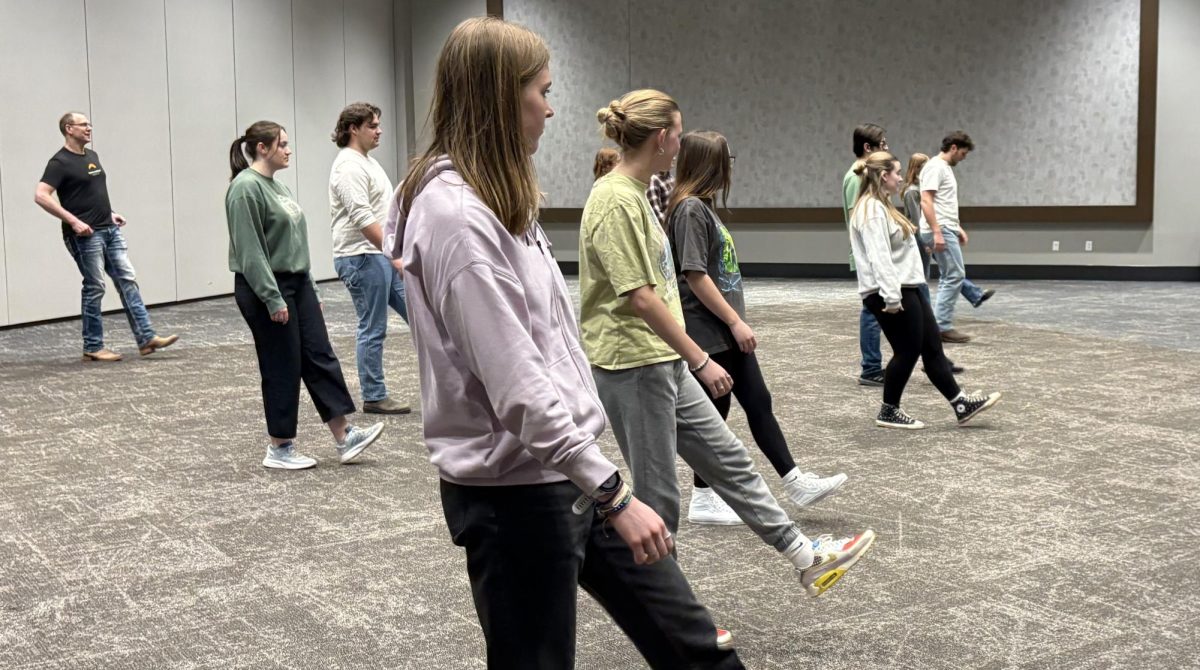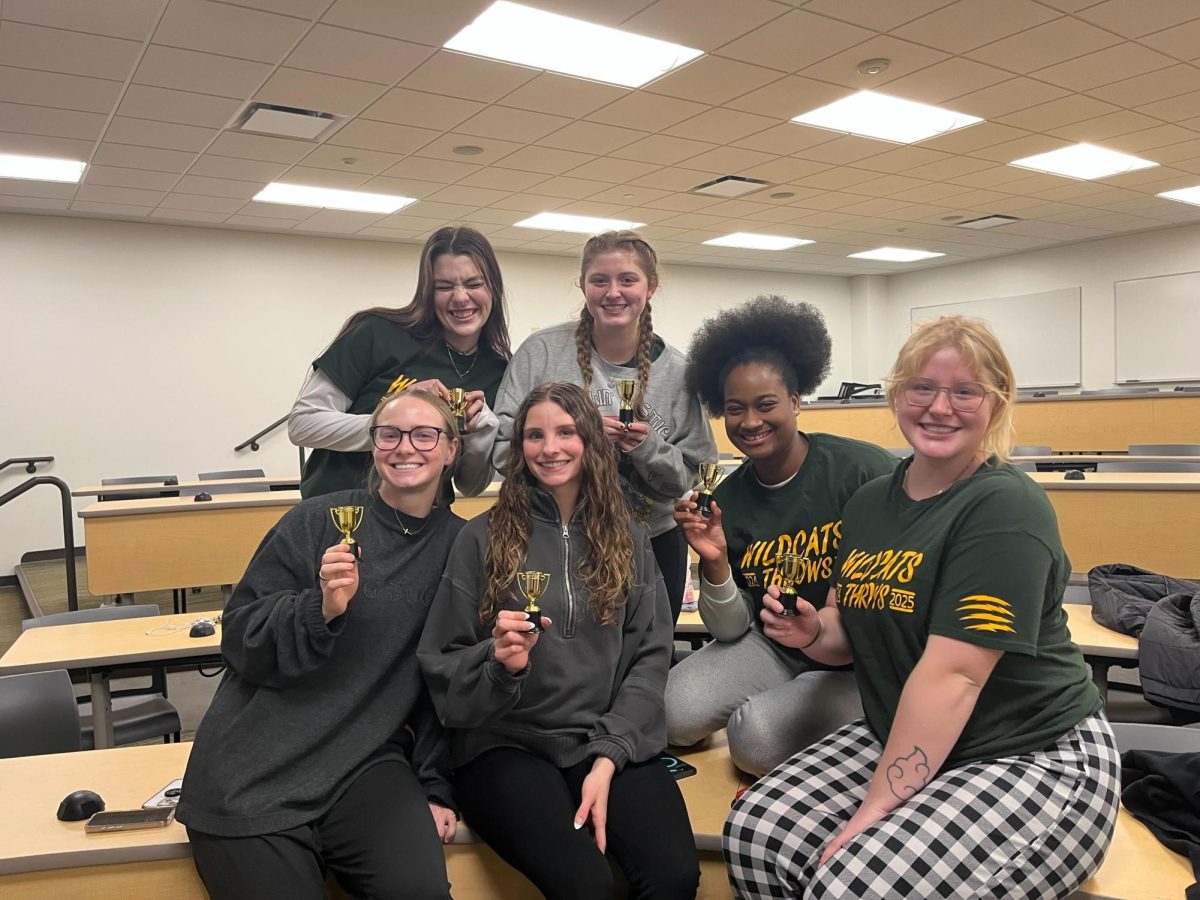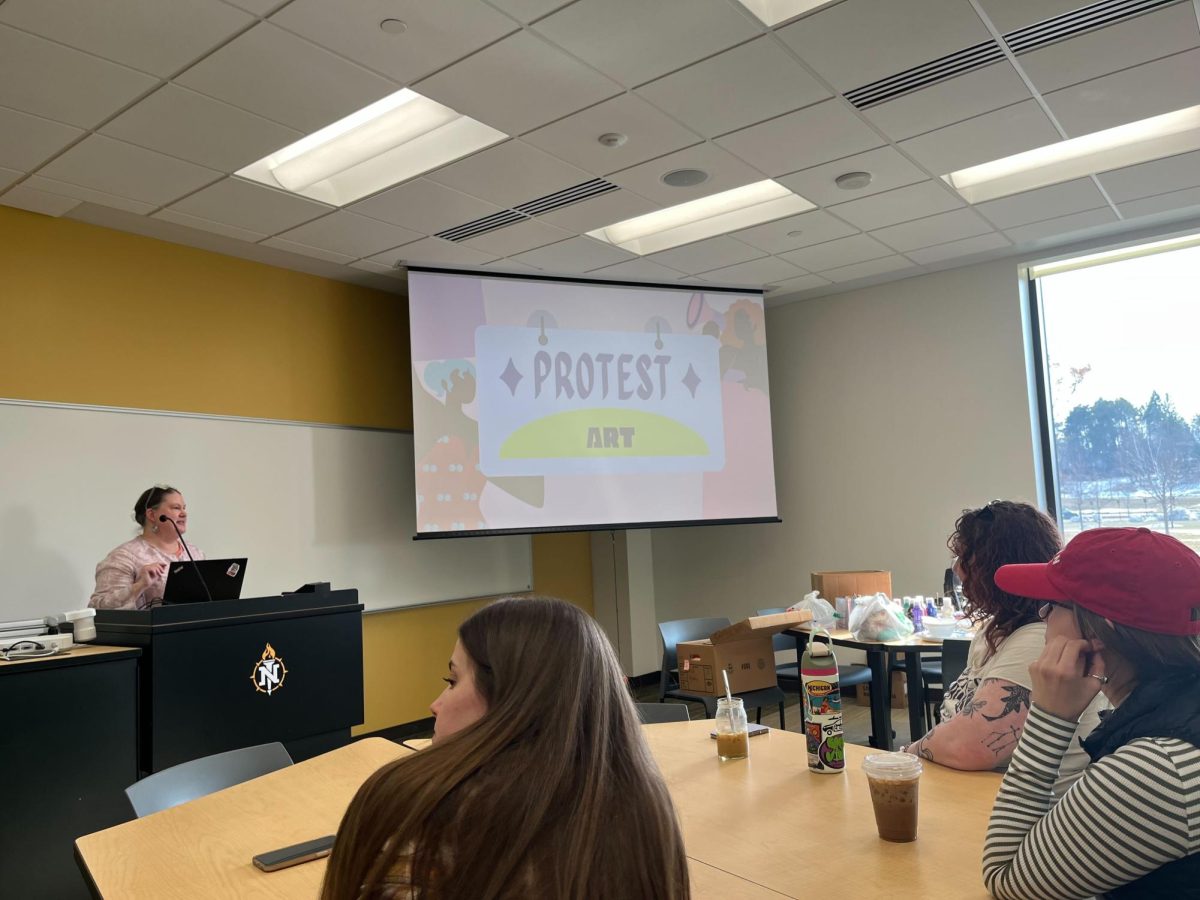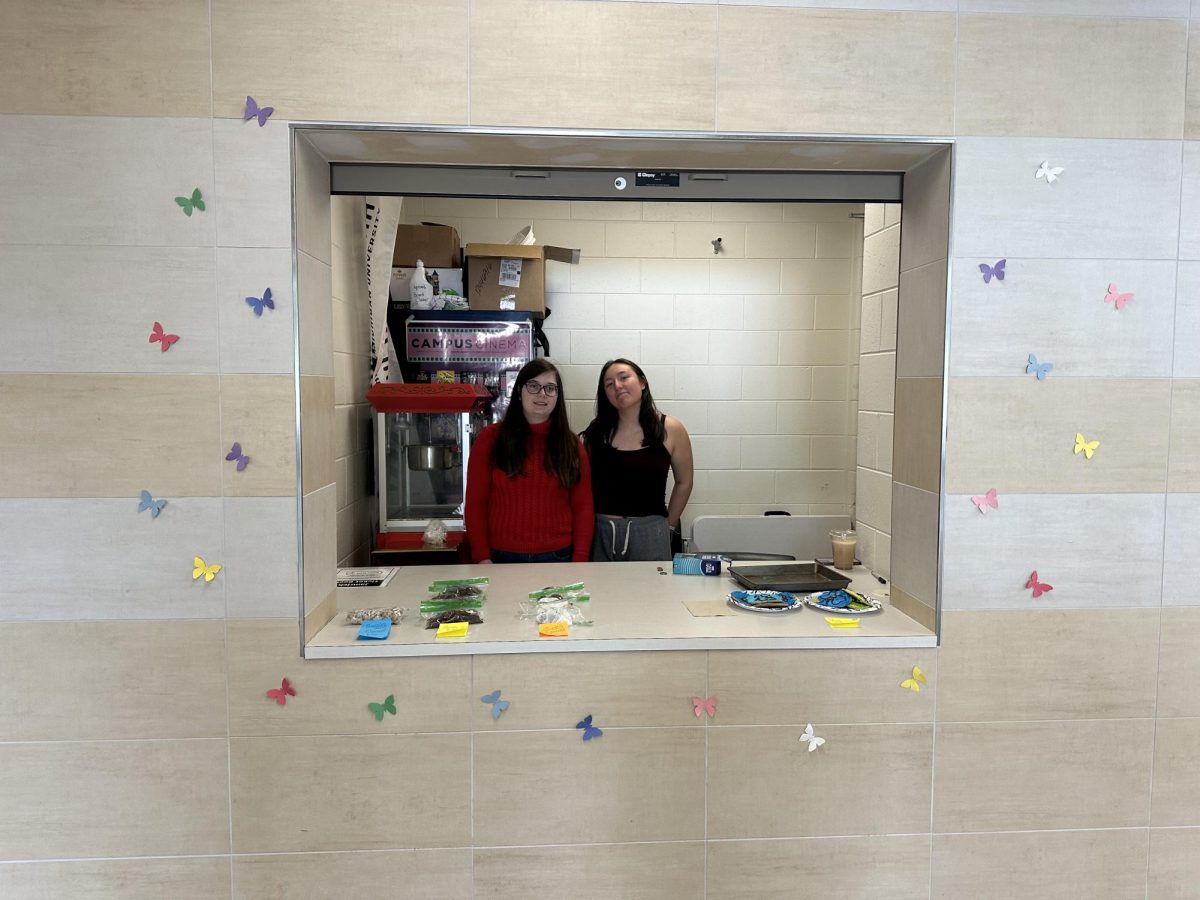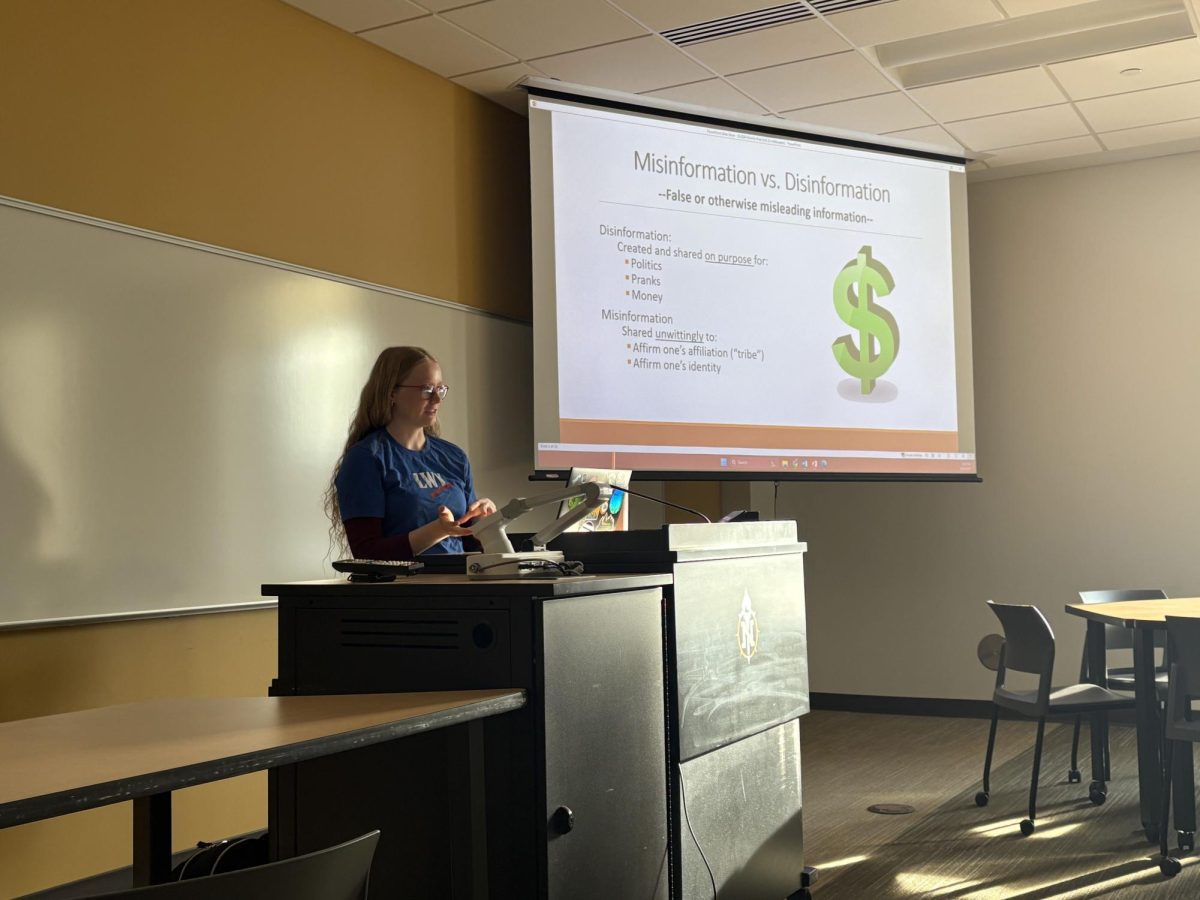The Bereavement Policy started by ASNMU three years ago has made a large step, and has gone through the first reading of the Academic Senate on Tuesday. It has to go through another reading at the Academic Senate who decide if it should move along. If it does move along, it goes to the provost before being admitted into Northern Michigan University policy. The Bereavement Policy would guarantee students time off should they face the death of someone close to them.
“I honestly feel that this is kind of sad that we have to legislate students to be able to grieve,” Music Department senator Jeffrey Vickers said. “That we have to spend hours and hours on something that feels like basic human decency. But whatever we come up with I’ll go along with … I am not saying it is not needed, but that it is a sad commentary.”
The policy saw minor debate between different department senators, who shared with and challenged each other. The debate saw senators recommend wordsmithing to be less vague, to require students to do less work when following the policy channels and to ask the two ASNMU representatives present to give a response.
“This has been trying to be passed for a few years now,” said ASNMU President Dana Hinckley. “The longer we spend on the details and changing the words the longer that students won’t have this policy. I think it has been two years it has been pushed off because of these tweaks, and yes the tweaks are important but if we could just get something out there I think that would be very beneficial for students.”
The Bereavement Policy will have its second reading at the next Academic Senate meeting.
This latest meeting included a presentation by the Center of Native American Studies. There were also three other first readings on policies done at this meeting. One was to make the admission to the Direct Admission Baccalaureate Nursing Sequence easier, one was a graduation list for those graduating in May and the last was about updates to the World Cultures Graduation Requirement. The last caused minor debate on the clarity of the policy language and its connotations in the current political climate.
“Why at this time of rising xenophobia of the national level in the forms of mass detention and deportations and travel bans, does the Gen Ed find it reasonable to cease requiring students learn at least something about the non-western world?” asked English Department associate senator Sandra Burr.
The World Cultures Graduation Requirement seeks to broaden the current requirement from the specified courses dealing primarily with living cultures of Asia, Africa and the non-Anglo-Saxon Americas.
“Each baccalaureate student must demonstrate competency in the Global Citizenship requirement which deals primarily with supporting students in furthering their knowledge of globally diverse groups, issues and identities to support a worldview based in the critical understanding of all who live in it,” the proposed policy states. “The experiences may include such topics as literary, artistic and other cultural achievements; religious and ethical values; social, economic and political systems; or intellectual and historical trends. Students may explore how various socially marginalized groups navigate the world with different and ever-changing social disparities, furthering the understanding to be conscious and reflective in regard to their own lived experiences as well as the lived experiences of those around them.”
In the Academic Senate meeting various committees in the senate sent in their annual reports. The Committee on Undergraduate Programs reported various course and program updates and compared them from the 2023-2024 academic year to the current. The CUP reported a total net gain of 60 courses offered at NMU with a net loss of 7 programs.
The next Academic Senate meeting will be held on April 8. Any students and faculty members may attend these meetings but first must email Academic Senate Executive Committee Chairperson Jaime Crabb at jcrabb@nmu.edu to secure a spot.

